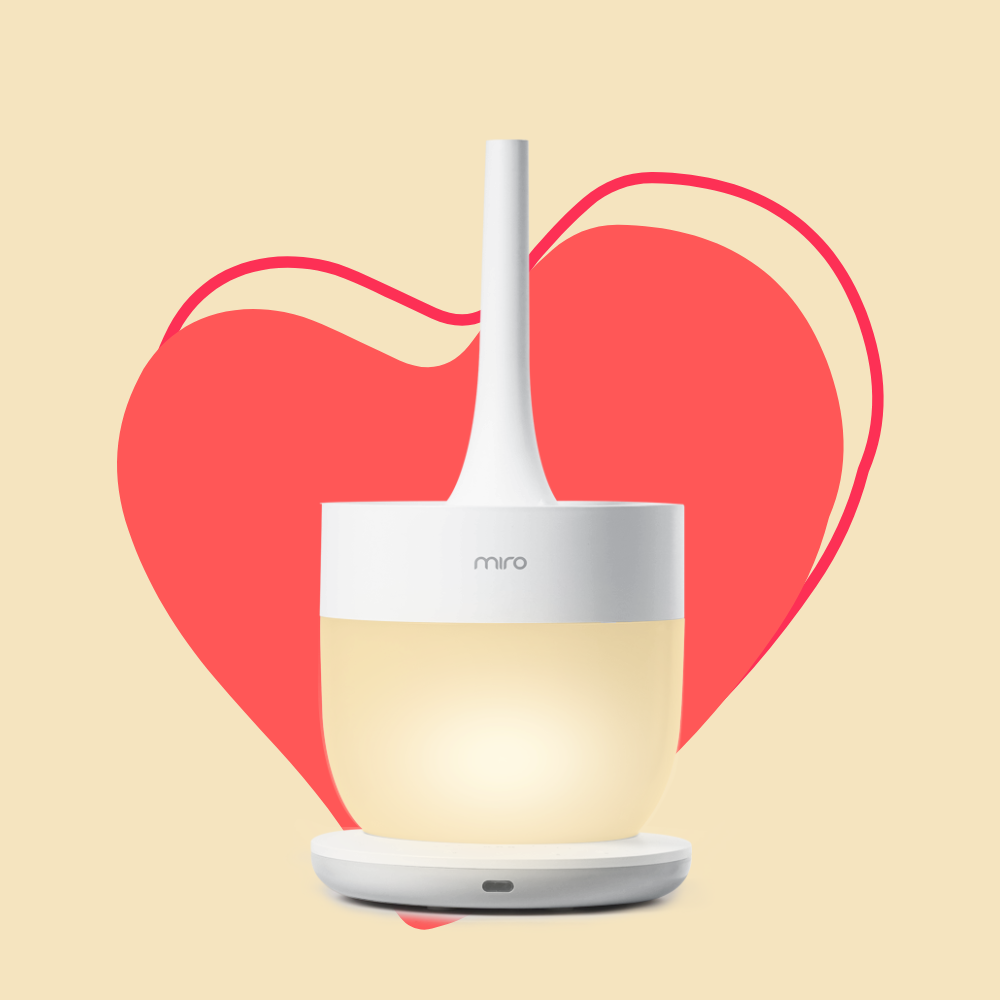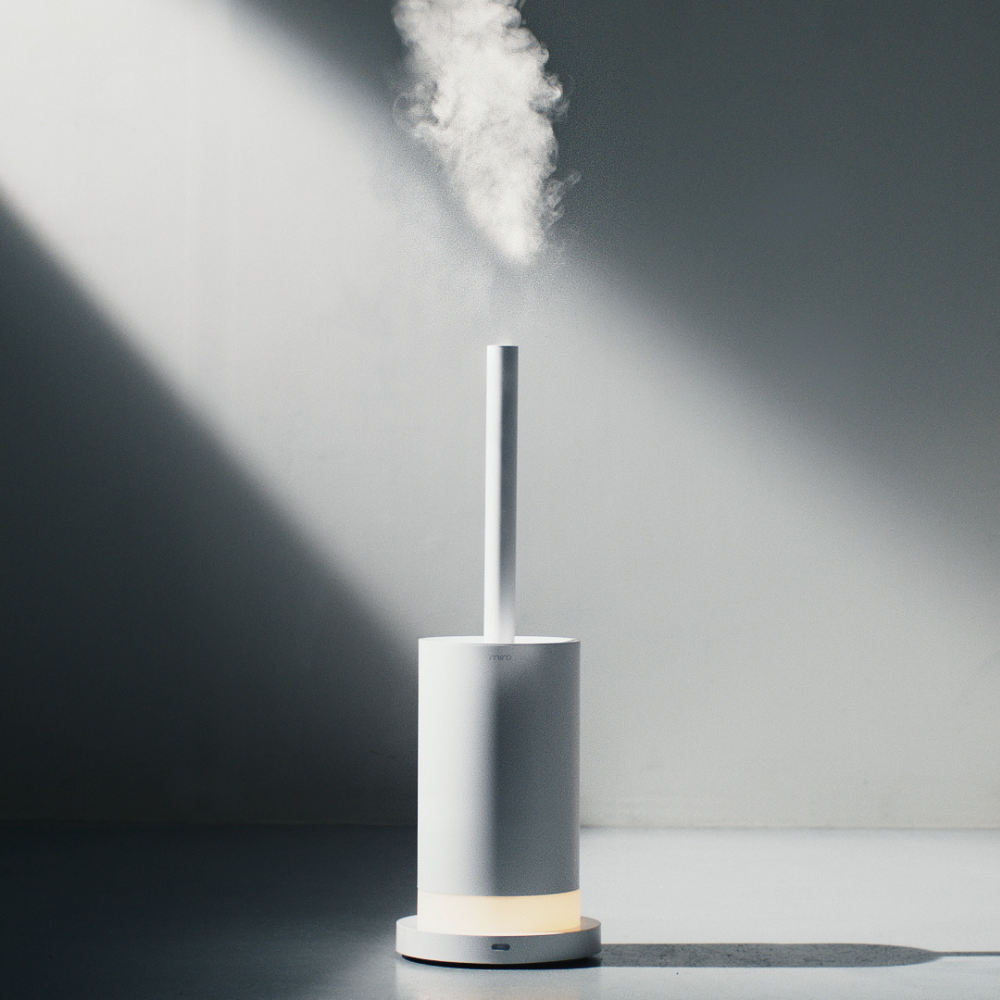

Why Is the Water in My Humidifier Dirty?
Are you tired of constantly finding dirty water in your humidifier? Have you ever wondered what causes the humidifier water to become dirty in the first place? If so, then you're in the right place! In this article, we will discuss the common causes of dirty water in humidifiers, such as mineral deposits, bacterial growth, and environmental factors, as well as provide you with some tips on how to prevent dirty water in your humidifier.
Common Causes of Dirty Water in Humidifiers
There are several reasons why the water in your humidifier might become dirty:
1. Bacterial and Algal Growth
Warm and damp environments are perfect for the growth of bacteria, algae, and mold. If you don't clean your humidifier regularly, these microorganisms can multiply and contaminate the water, leading to a foul smell, discolored water, and even black mold in severe cases. Mold spores and other harmful microorganisms can also affect air quality and pose health risks.
2. Mineral Deposits
If you're using tap water in your humidifier, minerals in the water can accumulate over time, forming deposits that can make the water appear dirty. These minerals, including heavy metals and other minerals found in hard water, can also be released into the air, creating a fine white dust around the room. Mineral buildup, or "scale," can clog filters and impact the performance of your humidifier's heating element.
3. Dust and Debris Accumulation in Humidifier Tank
Dust and debris from the surrounding area can find their way into the humidifier's water tank. This can lead to murky or dirty water and may affect the performance of the humidifier.
How to Prevent Dirty Water in Your Humidifier
To avoid dealing with dirty water in your humidifier, follow these tips:
1. Proper Maintenance and Cleaning
Clean your humidifier regularly according to the manufacturer's instructions. This includes wiping down the water tank, cleaning the base, and removing any mineral buildup. Regular maintenance can prevent mold growth and other issues caused by impure water. Use a microfiber cloth or paper towel for a thorough cleaning.
2. Using Demineralized or Distilled Water
Instead of tap water, use distilled or demineralized water in your humidifier. This will help reduce the mineral buildup and lower the chances of bacterial and algal growth. Filtered water can also be a better option than regular tap water, as it contains fewer minerals.
3. Replacing Filters Regularly
If your humidifier uses filters, make sure to replace them as recommended by the manufacturer. Dirty or worn-out filters can contribute to water contamination and poor humidifier performance.
4. Keeping Surrounding Areas Clean
Regularly dust and clean the area around your humidifier to minimize the amount of debris that can enter the humidifier water tank. Make sure the humidifier is placed on a clean, level surface and in a well-ventilated area.
How to Clean Your Humidifier
Follow these steps to keep your humidifier clean:
- Unplug and Disassemble Before cleaning, make sure your humidifier is unplugged. Remove the water tank, filter (if applicable), and any other removable parts.
- Clean and Disinfect Empty the water tank and clean it with a mixture of white vinegar (distilled white vinegar is ideal) and warm water to remove mineral build up and kill bacteria. Wipe down the base and other parts of the humidifier with a mild detergent solution. For deep cleaning, you can also use a soft brush or cloth to scrub away any stubborn buildup, including black residue or black spots.
- Rinse and Dry Rinse all the parts thoroughly with clean water to remove any remaining cleaning solution. Allow the components to air-dry completely before reassembling the humidifier.
- Reassemble and Refill Once all the parts are dry, reassemble your humidifier and refill the water tank with fresh distilled or demineralized water. Using pure water can help prevent mineral buildup and reduce the chances of your humidifier water turning black.
Signs Your Humidifier Needs Cleaning
Keep an eye out for these signs that indicate it's time to clean your humidifier:
- Unpleasant odors coming from the humidifier
- Discolored or murky water in the tank, sometimes turning black
- Visible mold, mildew, or algae growth
- Reduced mist output or poor performance
- White dust accumulation around the humidifier
- Clogged filter or black stuff in the filter
Health Risks Associated with Dirty Humidifiers
Using a dirty humidifier can pose several health risks, including:
- Respiratory issues due to the inhalation of bacteria, mold spores, and allergens
- Increased risk of asthma attacks or allergic reactions
- Sinus infections or other respiratory infections
- Aggravation of existing respiratory conditions, such as COPD or bronchitis
How to Choose the Right Humidifier for Your Home
When it comes to choosing a humidifier for your home, it's important to consider several factors to ensure that you select the right one for your needs. With so many different types of humidifiers on the market, it can be overwhelming to know where to start. In this article, we'll provide you with some tips on how to choose the right humidifier for your home.
1. Room Size
The size of your room is an essential factor to consider when selecting a humidifier. If you're looking to humidify a larger room, you'll need a humidifier with a higher output capacity, such as a console or whole-house humidifier. For smaller rooms, a tabletop or ultrasonic humidifier may be sufficient.
2. Type of Humidifier
There are several types of humidifiers to choose from, including evaporative, ultrasonic, steam, and whole-house humidifiers. Evaporative humidifiers use a fan to blow air over a wet wick, while ultrasonic humidifiers use high-frequency vibrations to create a mist. Steam humidifiers produce steam by heating water, while whole-house humidifiers are installed in your HVAC system. Each type has its own pros and cons, so it's essential to consider your needs and preferences when selecting a type.
3. Maintenance
The amount of maintenance required for a humidifier varies depending on the type. Evaporative humidifiers require regular cleaning of the wick, while ultrasonic humidifiers need to be cleaned to prevent bacterial growth. Steam humidifiers may require frequent descaling to remove mineral buildup, while whole-house humidifiers need to be inspected and serviced annually. Consider how much time and effort you're willing to put into maintaining your humidifier before making a purchase.
4. Noise Level
Some humidifiers can be quite noisy, which can be a concern if you're planning to use them in a bedroom or nursery. Ultrasonic humidifiers are generally quieter than evaporative humidifiers, while steam humidifiers can be noisier due to the sound of boiling water. Consider the noise level of a humidifier before making a purchase if noise is a concern for you.
5. Features
Humidifiers come with a range of features, such as humidistats, timers, automatic shut-off, and adjustable mist settings. Consider which features are important to you and whether they fit within your budget.
FAQs
How often should I clean my humidifier?
It's recommended to clean your humidifier at least once a week, or more frequently if you notice any signs of dirt, mold, or algae growth. Regularly cleaning your humidifier helps maintain high humidity levels without compromising air quality.
Can I use bleach to clean my humidifier?
While bleach can be effective in killing mold and bacteria, it's best to follow the manufacturer's cleaning instructions, as bleach can damage some humidifier components. Hydrogen peroxide can be a safer alternative for disinfecting your humidifier.
Is it safe to run a dirty humidifier?
No, running a dirty humidifier can pose health risks, such as respiratory issues, allergies, and infections. Always clean your humidifier regularly to maintain a healthy environment.
Conclusion
Keeping the humidifier water clean is essential for maintaining a healthy indoor environment. By understanding the causes of dirty water, such as mineral buildup, mold growth, and impure water, and following proper maintenance and cleaning procedures, you can ensure that your humidifier operates effectively and safely. Regular maintenance, using distilled or demineralized water, and monitoring for signs of a dirty humidifier can help you prevent issues like humidifier water turn black and stagnant water in your humidifier tank.


